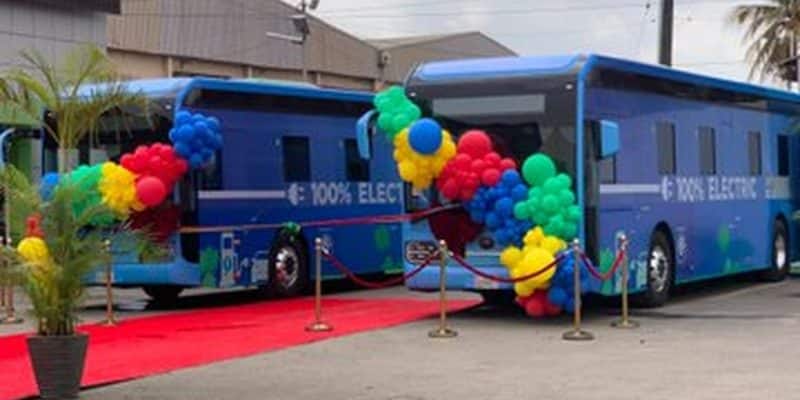Nigeria is taking action to decarbonise its transport system with the introduction of two new electric buses in the economic capital Lagos.
This is it. Nigeria’s first electric public transport buses recently went into service in Lagos. The 80-seater vehicles were manufactured in the factory of Chinese carmaker Yutong. They are the result of a collaboration between Nigerian energy solutions provider Oando and the Lagos Metropolitan Transport Authority (LAMATA).
The project, aimed at promoting environmentally-friendly mobility, is also expected to ease traffic congestion in Africa’s second most populous metropolis, with a total population of 22 million. “Our team will provide comprehensive and professional training, technical assistance and maintenance services to ensure the smooth operation of electric buses in Nigeria”, promises Frank Lee, Yutong’s Managing Director for West Africa.
According to the company based in the Chinese city of Zhengzhou, the two electric buses are equipped with batteries that can travel up to 280 kilometres without recharging, and interfaces to provide passengers with practical information (departure times, etc.). Babajide Sanwo-Olu, the Governor of Lagos, believes that the initiative will promote sustainable development through job creation and the social inclusion of vulnerable people.
Read also-AFRICA: By 2023, start-up MAX.ng to raise $100m to roll out EVs in 10 countries
The Nigerian authorities have no intention of stopping there. They are due to start work soon on rehabilitating two transport lines in the Ile Iwe-Ile Epo and Abule Egba-Command districts of Lagos. At a total cost of $50 million (around 21 billion naira), the project, financed by the International Finance Corporation (IFC), the private sector financing arm of the World Bank Group, will serve almost 150,000 people a day.
Benoit-Ivan Wansi






